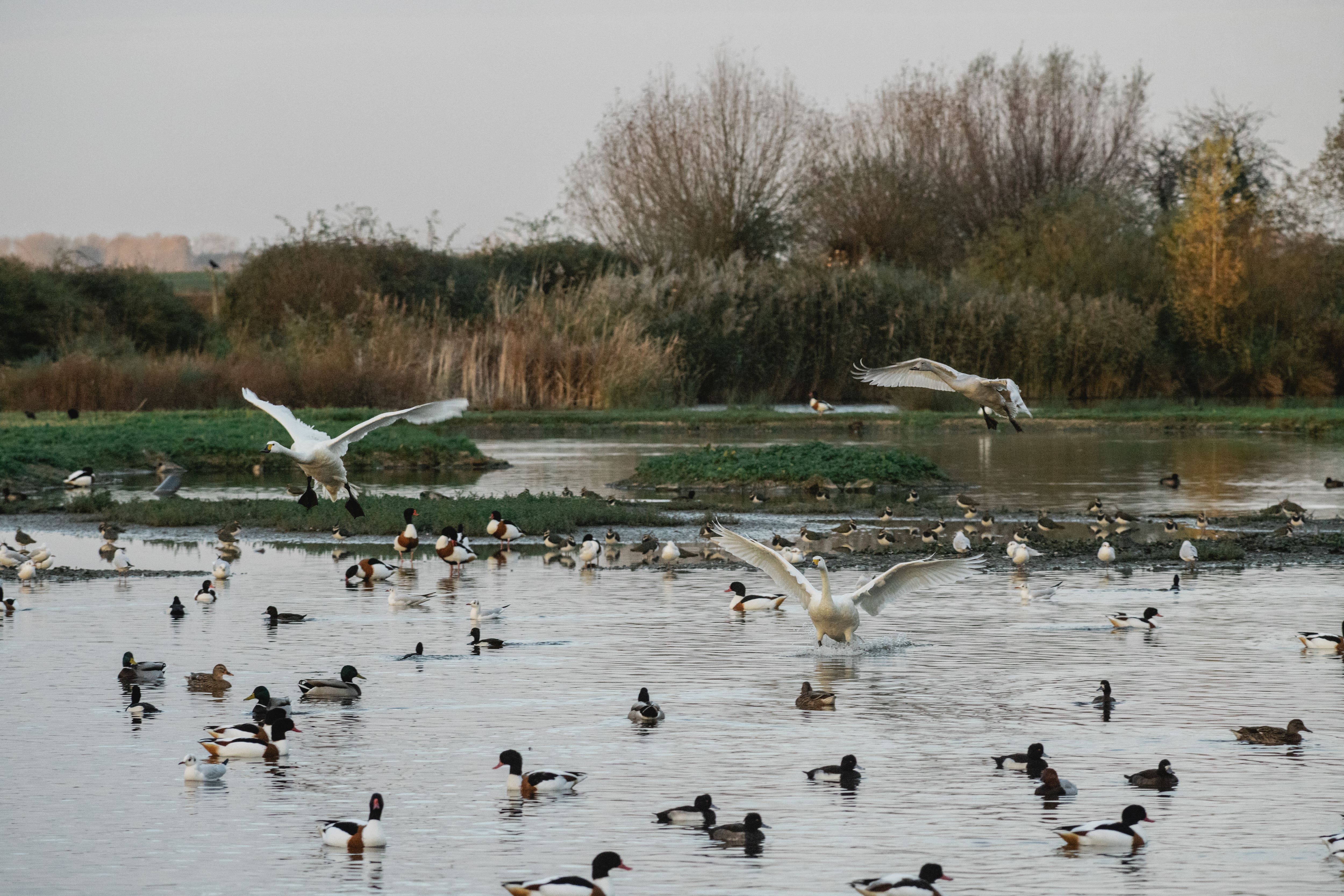Warming climate and storms see Bewick’s swans make latest arrival since 1965
The first swans – whose appearance traditionally marks the start of winter – arrived in Gloucestershire on Thursday.

The late arrival of Bewick’s swans in the UK for winter could be linked to warmer weather, experts believe.
The first swans – whose appearance traditionally marks the start of winter – arrived at the Wildfowl & Wetland Trust’s Slimbridge Wetland Centre in Gloucestershire on Thursday.
It is the latest the birds have arrived at the site in Gloucestershire since 1965.
Although the impact of the weather on bird migration is still being understood, it is thought likely the warmer climate is leading to the swans arriving later and in smaller numbers than in previous years.
Experts also believe the recent mixture of stormy and mild weather in recent weeks has had an impact.
Maisie, her partner Maifield, and their two cygnets landed three weeks later than swans did in 1965, and almost a week later than last year, having completed an epic 3,500-km annual migration from Russia’s arctic tundra.
As climate change warms the arctic tundra where Bewick’s swans breed, it is likely that birds are leaving their summer haunts later, with many travelling less far west than in previous generations.
Milder conditions caused by climate change in Europe may mean we see fewer of these birds flying to the UK in the colder months, with their winter strongholds moving steadily east.
Research has already shown that their wintering range has shifted more than 350km closer to their arctic breeding grounds since 1970, driven by increasing temperatures.
Maisie first wintered at Slimbridge in 2014 and has returned to the reserve every year since and in 2016 she arrived with her new mate Maifield.
After coupling up the pair brought their first two cygnets back to Slimbridge in 2020, three more in 2021, two more last winter and another two this year.
Maisie also featured in the film Flight Of The Swans, a story of hope and discovery looking at how communities across 11 countries, from the Arctic to the UK, are working hard to protect Bewick’s swans and wetlands.
Kane Brides, from the WWT said: “For the second year in a row we’re seeing Bewick’s swans returning later than we would expect, with Maisie and Maifield being the latest first arrival on record since 1965.
“Bewick’s swans are a bird that holds special importance to WWT, appearing on our logo and being the subject of a 60-year single species study which has allowed us to track the species’ fortunes in the UK in minute detail for decades.
“If more individuals end up ‘short-stopping’ their autumn migration, it’s possible that in decades to come we might no longer expect to see Bewick’s swans at WWT Slimbridge, a tangible impact of climate change playing out right before our eyes.”
Bewick’s swans are small white swans with a black and yellow bill. Every winter they return to the UK to escape the arctic winters of Russia.
Their arrival is spurred on by the onset of colder weather on the continent, north-easterly winds, and their need for access to ice-free wetlands, including WWT’s sites in the UK.
The population of these birds has plummeted in recent decades, following a series of poor breeding seasons.
The swans also face pressure from the loss of healthy wetland habitats across their range, as well as the impact of climate change, lead ammunition poisoning and illegal hunting.
Bookmark popover
Removed from bookmarks